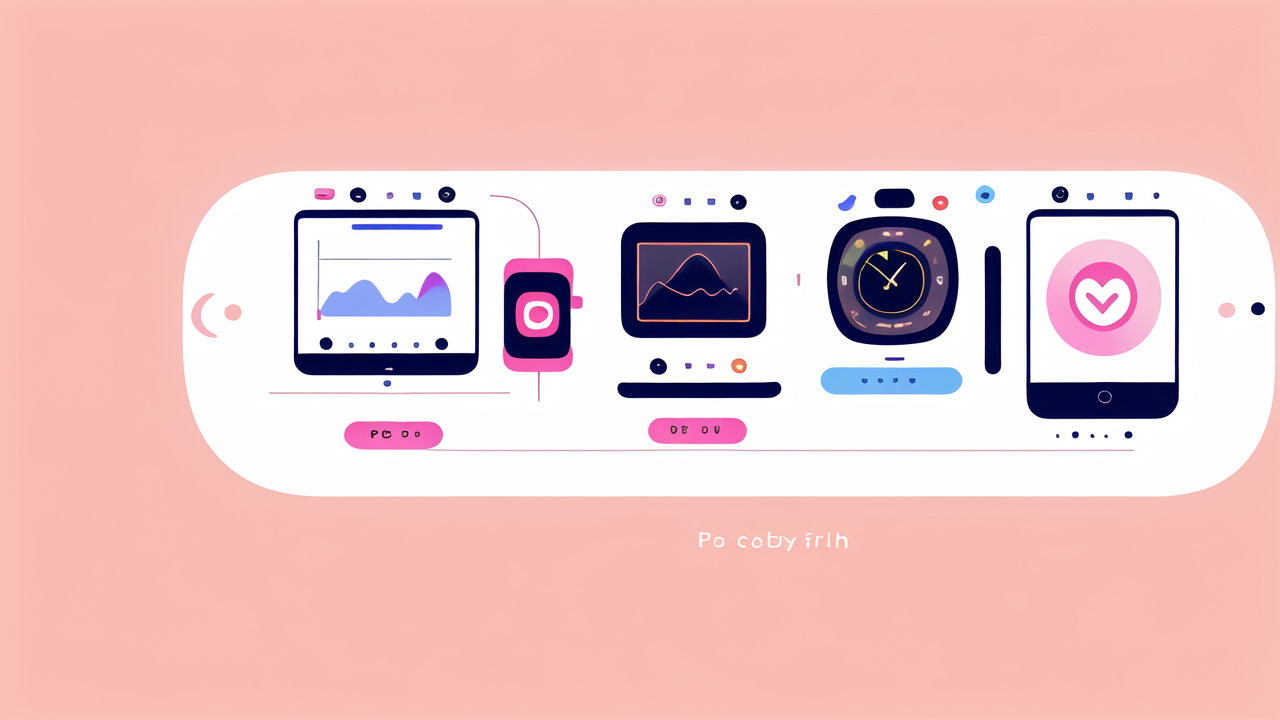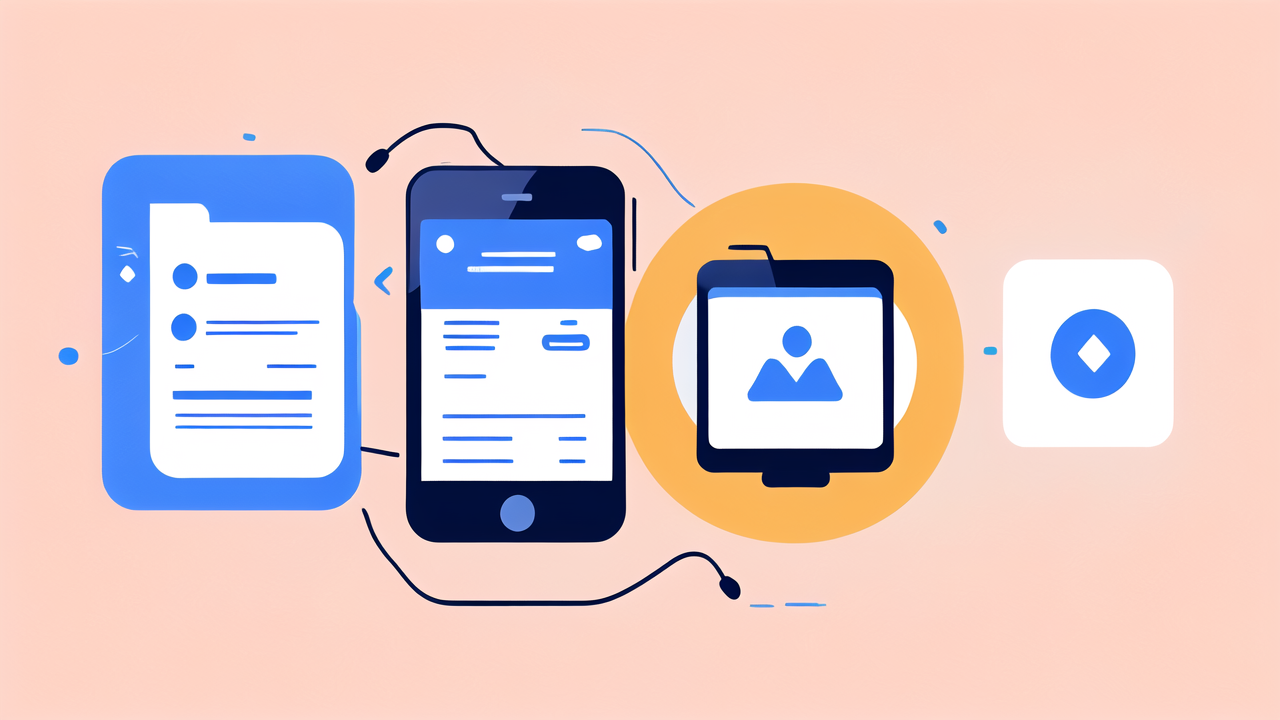Understanding the Role of Smart Watches in Health Care
The Evolution of Personal Health Monitoring Technologies
Health monitoring has come a long way. It started with simple devices like pedometers. Now, we have smart watches. These watches can track many health aspects. They measure heart rate, steps, and even sleep patterns.

Early fitness trackers were basic. They only counted steps. Today's smart watches are much more advanced. They use sensors to collect data. This data helps users understand their health better.
The growth of smart watches has been rapid. More people are using them to track their health. This trend is changing how we think about personal health care.
Key Features of Smart Watches for Health Monitoring
Smart watches offer many health features. Here are some key ones:
- Heart rate monitoring
- Step counting
- Sleep tracking
- Stress level measurement
- Blood oxygen level detection
- ECG readings (on some models)
These features help users track their health daily. They can spot trends and changes in their body. This information can be very useful for maintaining good health.
Some watches can even detect falls. This is great for older users. It can alert family or emergency services if needed. These features make smart watches valuable health tools.
Integration with Health Systems and IoT
Smart watches are part of a bigger health ecosystem. They can connect to other devices and systems. This is known as the Internet of Things (IoT).
These watches can share data with your doctor. This helps them monitor your health remotely. It's especially useful for people with chronic conditions.
Many health apps work with smart watches. They can give you personalized health advice. Some insurance companies even offer rewards for using these devices.
The integration of smart watches with health systems is growing. It's making health care more connected and personalized.
Top Smart Watches in the Health Monitoring Market
Leading Brands and Their Health-Focused Features
Several brands lead the smart watch market. Each offers unique health features. Here are some top brands:

- Apple Watch: Known for its ECG feature and fall detection.
- Fitbit: Offers detailed sleep tracking and stress management tools.
- Samsung Galaxy Watch: Provides blood pressure monitoring in some regions.
- Garmin: Popular among athletes for its advanced fitness tracking.
These brands keep adding new health features. They compete to offer the most comprehensive health monitoring. This competition drives innovation in the market.
Each brand has its strengths. Some focus on fitness, others on medical-grade features. Users can choose based on their specific health needs.
Comparative Analysis: Battery Life, Processor Power, and Compatibility
When choosing a smart watch, several factors matter. Battery life is crucial for continuous health monitoring. Some watches last days, others need daily charging.
Processor power affects how quickly the watch responds. It also impacts the complexity of health apps it can run. More powerful processors allow for more advanced health features.
Compatibility is another key factor. Some watches only work with certain phones. Others are more flexible. This can affect your choice based on your current devices.
Here's a quick comparison:
- Battery Life: Garmin often leads, with some models lasting weeks.
- Processor Power: Apple and Samsung typically have the most powerful chips.
- Compatibility: Fitbit and Garmin work with both iOS and Android. Apple Watch is iOS only.
These factors can impact the watch's health monitoring capabilities. Users should consider their needs when choosing.
User-Experience and Software Ecosystem for Health Professionals
The software ecosystem is vital for health monitoring. It determines how useful the data is. Good software makes the data easy to understand and share.
For health professionals, the ability to access and analyze patient data is key. Some brands offer special platforms for this. They allow doctors to view trends in their patients' health data.
User experience varies between brands. Some are more intuitive than others. This can affect how likely people are to use the health features regularly.
Many watches allow third-party health apps. This expands their capabilities. It lets users and health professionals customize the watch to their needs.
The best ecosystems make it easy to:
- View health data over time
- Share data with healthcare providers
- Set health goals and track progress
- Receive alerts for unusual health patterns
A good software ecosystem can turn a smart watch into a powerful health tool.
Challenges and Opportunities in Health Monitoring Through Wearables
Overcoming Common Hurdles in Health Monitoring Adoption
Despite their benefits, smart watches face adoption challenges. Some common hurdles include:

- Cost: High-end models can be expensive.
- Battery life: Frequent charging can be inconvenient.
- Accuracy concerns: Some users doubt the accuracy of health data.
- Privacy worries: People are concerned about their health data being shared.
To overcome these, companies are working on:
- More affordable models
- Improved battery technology
- Better sensors for more accurate readings
- Stronger data protection measures
Education is also key. Many people don't know how to use all the health features. Better user guides and tutorials can help with this.
As technology improves, these hurdles are becoming less significant. This is leading to wider adoption of smart watches for health monitoring.
The Future of Wearable Health Technology in the United States
The future of wearable health tech in the US looks promising. More people are becoming health-conscious. This drives demand for personal health monitoring devices.
We can expect to see:
- More advanced sensors for detecting health issues
- Integration with telemedicine services
- Use in clinical trials and medical research
- Personalized health recommendations based on data
The US healthcare system is also embracing wearables. Some doctors now prescribe smart watches to monitor patients. This trend is likely to grow.
Government support could boost adoption. Policies promoting digital health could make smart watches more accessible. This could lead to better preventive care and reduced healthcare costs.
Ethical Considerations and Data Security in Personal Health Monitoring
As smart watches collect more health data, ethical concerns arise. Privacy is a major issue. Users worry about who can access their health information.
Data security is crucial. Companies must protect users' sensitive health data from breaches. This requires robust security measures and transparent policies.
There are also concerns about data accuracy and interpretation. Misinterpreted data could lead to unnecessary worry or wrong health decisions.
To address these issues, we need:
- Clear regulations on health data use and sharing
- Improved data encryption and security measures
- Better user control over data sharing
- Education on the limitations of wearable health monitoring
Balancing innovation with ethics is key. As smart watches become more powerful health tools, addressing these concerns will be crucial for their success.




Leave a comment
This site is protected by hCaptcha and the hCaptcha Privacy Policy and Terms of Service apply.